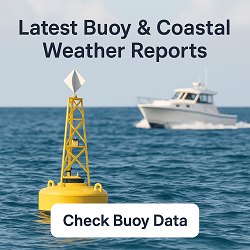Rockhill Furnace, PA Weather Forecast and Current Conditions (17249)
Current Conditions From Nearby Station

Feels Like 45°F
at
Current Conditions From Nearby Station

Feels Like 45°F
at
Point Forecast at a Glance







Week Ahead Summary
Temperatures remain relatively stable through the week, ranging from 65°F to 71°F. Some rain possible with at least 3 days showing precipitation chances of 20% or higher.
Climate Context
This week's forecast shows temperatures running 4°F above the historical average for October. Normal highs for this period are around 64°F with lows around 43°F.
This Date in Weather History
1880 - A violent early season blizzard raked Minnesota and the Dakotas. Winds gusted to 70 mph at Yankton SD, and snow drifts 10 to 15 feet high were reported in northwest Iowa and southeast South Dakota. Saint Paul MN reported a barometric pressure of 28.65 inches on the 16th. Railroads were blocked by drifts of snow which remained throughout the severe winter to follow. Gales did extensive damage to ship on the Great Lakes.
More on this and other weather history
Rockhill Furnace 7 Day Weather Forecast Details
Wednesday Oct 15

Day: Mostly sunny, with a high near 69. North wind 2 to 8 mph.

Night: Clear, with a low around 38. North wind 3 to 7 mph.
Thursday Oct 16

Day: Sunny, with a high near 65. North wind 3 to 8 mph.

Night: Areas of frost after 4am. Clear, with a low around 31. Northwest wind 2 to 7 mph.
Friday Oct 17

Day: Widespread frost before 9am. Sunny, with a high near 66.

Night: Partly cloudy, with a low around 38.
Saturday Oct 18

Day: Mostly sunny, with a high near 71.

Night: Partly cloudy, with a low around 45.
Sunday Oct 19

Day: A chance of rain showers after 8am. Partly sunny, with a high near 71. Chance of precipitation is 50%.

Night: Rain showers likely. Mostly cloudy, with a low around 46. Chance of precipitation is 70%.
Monday Oct 20

Day: Rain showers likely. Partly sunny, with a high near 66. Chance of precipitation is 60%.

Night: A chance of rain showers. Partly cloudy, with a low around 43. Chance of precipitation is 30%.
Tuesday Oct 21

Day: A slight chance of rain showers before 8am. Mostly sunny, with a high near 67.
Sun & Moon Monthly
Sunrise 7:23 AM
Sunset 6:33 PM
Last Light 7:00 PM
Moonset 4:02 PM

Contiguous United States Extremes
Tue's High Temperature
97 at Rio Grande Village, TX
Tue's Low Temperature
15 at 19 Miles East Of Swan Lake, MT
Weather Folklore
Clear moon, frost soon.
Current subscribers - login to your ClearSky account
How We Provide Better Local Weather
Current conditions: We use the nearest available station to your location - including professional MESONET/MADIS and local weather stations - often miles closer than regional airports.
Forecasts: National Weather Service point forecasts predict for your specific area, not broad regional zones, making them far more relevant to your location.

